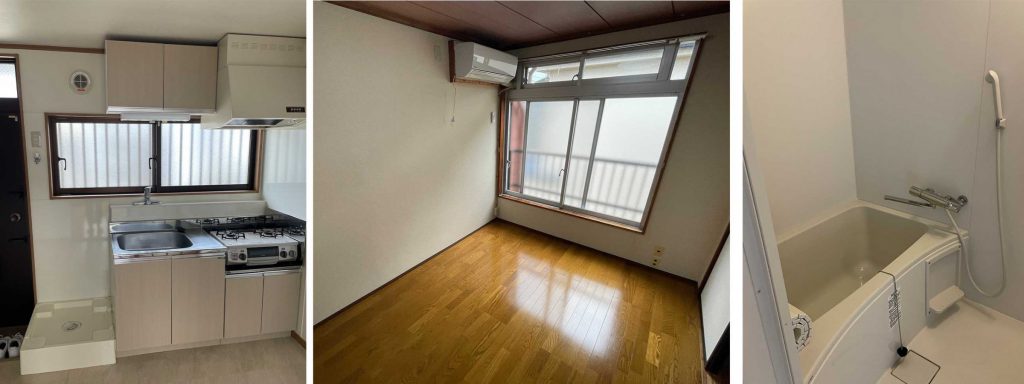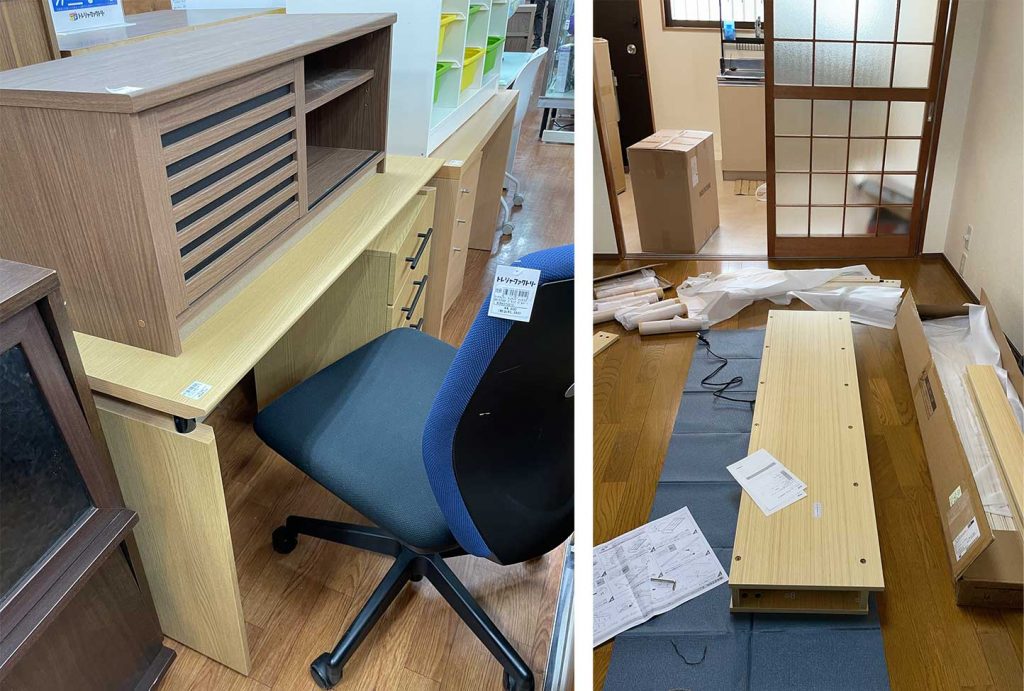Apartment hunting can be a daunting task anywhere in the world, but for foreign students looking for accommodations in Japan, the process comes with its own set of unique challenges. Japan boasts a rich culture, advanced technology, and a unique way of life, but when it comes to finding suitable accommodations, many foreigners may find themselves navigating a labyrinth of cultural differences, language barriers, and unfamiliar real estate practices.
Complex Real Estate Practice & Legal Frameworks:
Japan’s real estate practices and legal frameworks can be complex and unfamiliar to many foreign students. Unlike in some Western countries where rental applications can be straightforward, Japan’s system tends to be more complex and requires more paperwork and steps, such as requiring a guarantor; a Japanese citizen (or company) who vouches for the tenant. For foreign students without a local network, this poses a significant challenge, as finding a guarantor can be a major hurdle. But most realtors will refer you to a guarantor company to which you pay a fee, usually one month of rent, for them to act as your guarantor. The law protects tenants’ rights and makes it difficult for a landlord to terminate a lease contract from their side without proper cause and going through the courts, which makes some landlords very selective of their tenants and thus requiring some type of guarantor. An ordinary lease often requires another fee payment to renew, so make sure to budget for this or negotiate this with your realtor and landlord during your search or negotiations. Hence, I only recommend students that will be staying in Japan for over 2 years to consider renting an apartment.
Additionally, the upfront costs associated with renting an apartment in Japan can be steep, including key money (a non-refundable gift to the landlord), a security deposit, and agency fees. Understanding and budgeting for these expenses can be perplexing for those unfamiliar with the Japanese rental system. I recommend an estimated budget of at least 4-5 months of the listed rent as an initial cost of moving, which does not account for furniture or other expenses associated with moving. During your search using various search engines, you can usually filter out any listings with these types of fees (i.e. key money and security deposit) to lower the initial cost.
Possible Discrimination and Cultural Challenges:
Foreigners in any country may encounter various cultural issues and challenges when searching for accommodations; sometimes based on stereotypes or misconceptions. Japan has a risk averse culture and so many landlords or real estate agents may be hesitant to rent to non-Japanese individuals due to concerns about language barriers, cultural differences, or perceived difficulties in communication. These factors can be frustrating and disheartening for any foreigner searching for a place to call home. My recommendation is to let them know your visa status upfront and let landlords know ahead of time that you are a foreign student but reassure them that there will be no issues with you as a tenant, either culturally (respecting quiet and proper garbage separation) or with the Japanese language. If you do not have a high enough Japanese proficiency, you may be able to convince them that you have Japanese language support through family, friends, lab mates, or school staff that can help mediate any issues. Sometimes a person can bring a fluent Japanese-speaking relative or friend to help, but keep in mind that a landlord may want the resident himself/herself to be fluent enough to resolve any immediate issues that could arise.
I had begun my apartment search two months before my planned moveout from my previous dorm, which gave me time to search through many listings from different realtors. I was able to find my perfect apartment with an amazing and open-minded landlord after dealing with a few difficult listings. The first two apartment tours I requested were canceled after it was revealed that I was a foreign student. This was kind of disheartening, since my level of Japanese is conversational, but I think the landlords were still worried about other potential cultural issues. Subsequently, I requested my realtor to inform any landlords that I am a foreign student ahead of any touring request. Luckily, the landlady of the third apartment I found was kind and open-minded having lived abroad previously, and she was compassionate and open to having a foreign tenant. I had already made the decision to lease it before touring the apartment due to the landlord’s kindness; but I fell in love with the apartment after the tour, seeing how clean and well-renovated it was. The landlady even offered me a large discount on the rent (5000円) and offered to waive the contract renewal fee if I decided to extend my lease after two years because she liked that I was a foreign student from Tokyo Tech. You can get similar reduced realtor fee by providing a ‘certificate of enrollment’ from either the coop or administration office for some realtors.

There exist landlords who may discriminate, but there are also many who are open and welcoming, so make sure you uphold great integrity to maintain and grow the trust in foreign tenants in Japan for the future. It may be daunting and frustrating at times, but there are many resources available to help you in your search. Using foreign-friendly realtors such as Leopalace, Sakura House, or Panet Labo are the easiest way to find apartments that are welcoming to foreigners, with some offering student pricing and deals.
Language Barriers:
One of the primary obstacles faced by foreigners in Japan during apartment hunting is the language barrier. While major cities like Tokyo may have a growing number of English-speaking landlords and real estate agents, most of the rental market still operates in Japanese. This can be especially challenging for foreigners with limited or no proficiency in the language, making communication and negotiation difficult.
Previously, I took a friend that had only basic Japanese level ability to visit a real estate company (fudousan, 不動産), but the agent said it would be almost impossible to find an apartment for them due to their lack of Japanese. He explained most landlords can only speak Japanese and it would be difficult for them to communicate with my friend if any issues were to arise. This severely restricted their access to most of the available apartments in Tokyo and gave them a lot of stress. Many of my friends were able to find an apartment by using a foreign-friendly realtor, like Leo Palace and Panet Labo, that caters to foreign residents and students. These foreigner-oriented realtors usually have listings that are a little more expensive, but they have assistant services that can help you with various aspects of moving like setting up certain utilities (electricity and gas), provide explanations, and be a translator/mediator between landlord and tenant. These realtors also have fully-furnished options for short-term residents who may not wish to spend the money purchasing their own furniture.
If a student has a Japanese level equivalent to JLPT N3 , where they can converse in Japanese well enough, then many more options would be available to them. When I was living in a school dormitory and my Japanese was not at a high level, I used the dorm’s Japanese tutoring service. Japanese students are living in the dorm and act as a translator and mediator for foreign student like me. This was helpful when going over the details of the lease, getting quotes for utility services, and filling out any associated applications and paperwork. Tokyo Tech’s webpage offers a wealth of resources to find dorms and apartments in English. Tokyo Tech Housing Support and Tokyo Tech UNIV COOP (in Japanese) offer various types of assistance like referral to local relators; for COOP members, they can print you a “recommendation letter” that can help provide discounts at various real estate companies like 50% off the realtor fee.
Limited Furnished Apartments:
Unlike in some Western countries where furnished apartments are common, the majority of rental properties in Japan are unfurnished, sometimes even without ceiling light fixtures, stoves, or air conditioners. This can be an inconvenience for foreign students moving to Japan temporarily, as it requires additional investment in furniture and appliances. Navigating the logistics of furnishing an apartment adds another layer of difficulty to the apartment-hunting process. There are various apartment companies that offer furnished apartments (e.g. Sakura House and Leo Palace) for an additional fee. I recommend that students who will be residing in Japan for only a year or two to just stay in a dormitory that is already furnished and offers good student support.
Moving your personal possessions from your current dorm/accommodations can be expensive as well particularly if you add on services such as packing and unpacking. If you do not have a lot of items or furniture/appliances, then I recommend packing your items into boxes yourself and using a transport company (such as Yamato Kuroneko) to deliver your items to your new residence. But if you want to save even more money and you have an international driver’s permit or Japanese driver’s license, then you can rent a Kei-truck or car to transport your items yourself. I was able to rent a truck for the day for about 8000円 and had some friends help me load and unload the car, which saved me tens of thousands of yen. I also used the truck to buy and pickup various used appliances and furniture to furnish my apartment, saving me money on delivery fees. I have even helped many of my friends move their stuff and help procure furniture with a rental truck since I possess an international driving permit.
A good cost saving strategy that I implemented was buying as many second-hand things as possible at recycling stores such as Hard-off, 2nd street, and Facebook marketplace. People in Japan tend to take great care of their possessions, so most of these used/second-hand items are still in great condition for a fraction of the cost. One can possibly find and procure free items from other foreign students/residents that are moving away and are looking for a way to get rid of their unneeded stuff.

Conclusion:
While Japan offers a unique and enriching experience for foreign students, the challenges of apartment hunting can be overwhelming. Overcoming language barriers, understanding the intricacies of the rental system, and addressing potential prejudices are all part of the journey for those seeking accommodations in Japan and any other foreign country. Foreigners are encouraged to seek assistance from relocation services, bilingual or foreigner-oriented realtors, and foreign communities to navigate the complexities of apartment hunting in Japan successfully. Seeking advice or help from other foreign students is also a great way to help you with your search. By being proactive, creative, and informed, any student can turn the apartment-hunting process into a rewarding experience and fully embrace their time here in Japan.
